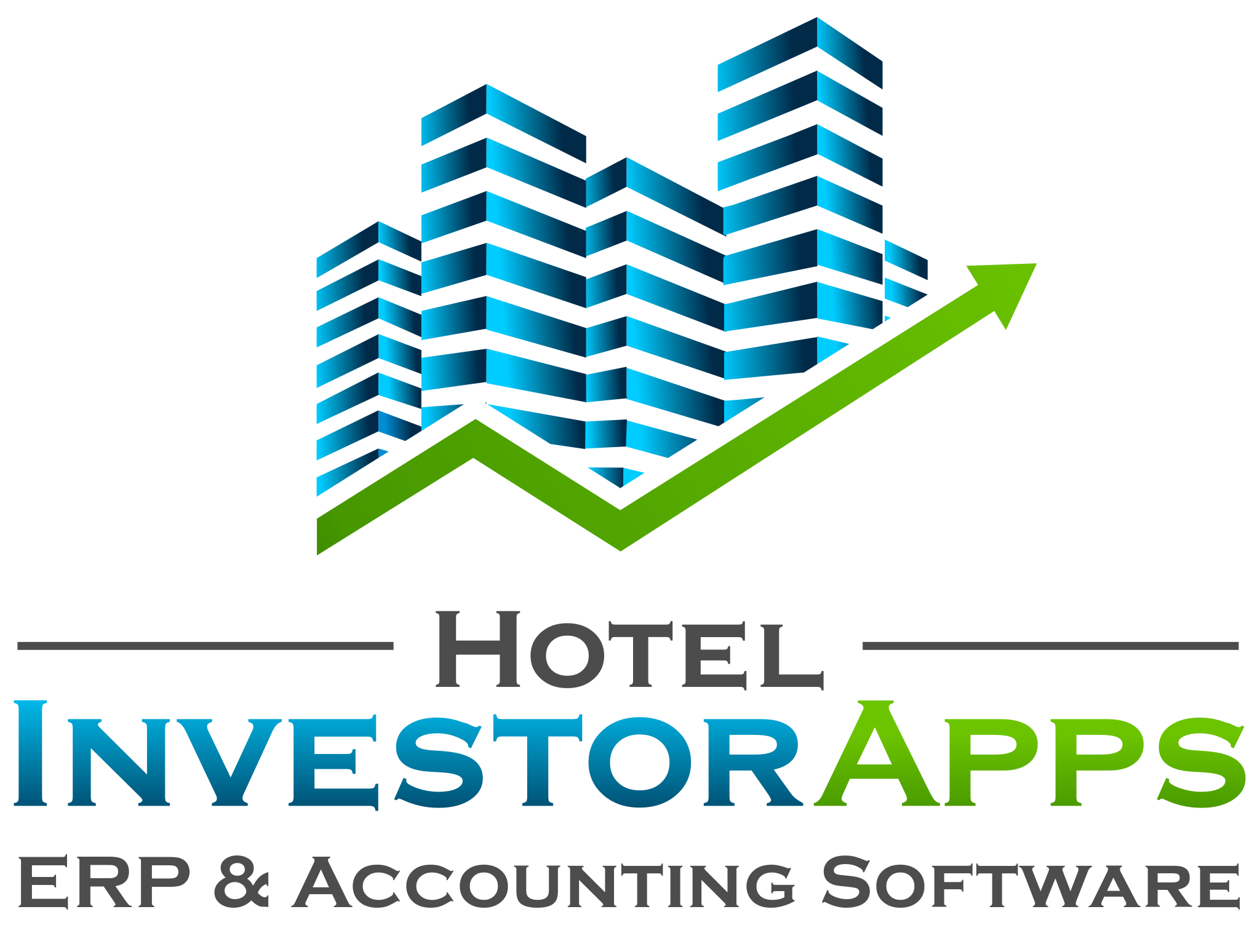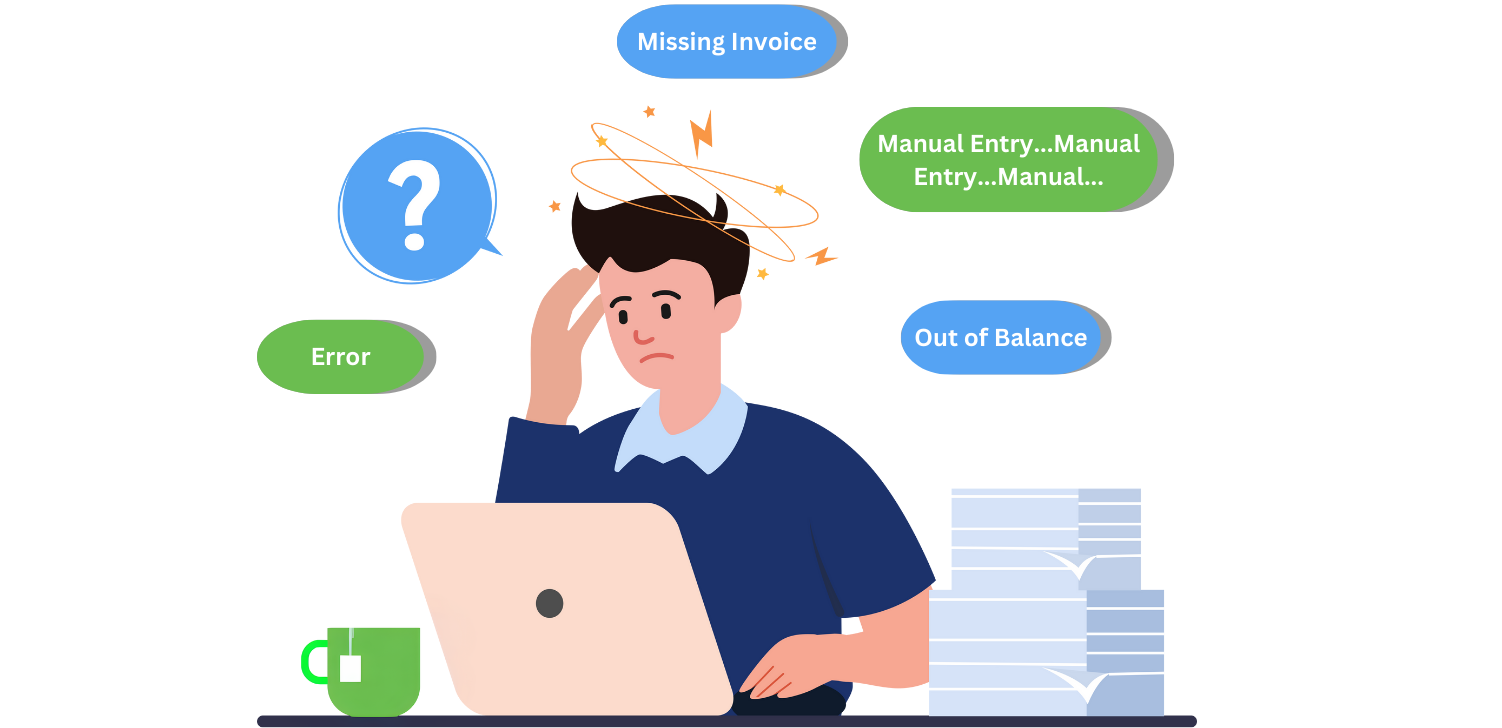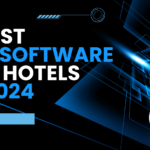Just as it takes a specific skill set to effectively manage hotels, those of us in the industry also know that hotel management itself requires specific software. Hotel-specific accounting software meets the unique needs for hotel accounting; however, it was never designed to be used by third-party management companies to manage their corporate finances.
To highlight the challenge, consider accounts receivable. For a hotel, all revenue is recorded in the property management system (PMS) which means there is no need for accounts receivable software. However, for a hotel management company, accounts receivable is an essential accounting function to send invoices to each hotel for management fees.
Many hotel management companies end up using two separate accounting systems, one for managed properties and another for the corporate entity. Yet, relying on two disparate systems creates numerous challenges, extra manual work, and more opportunities for errors, especially when it comes to intercompany transactions in either accounts receivable or accounts payable.
What is Intercompany Accounting?
Intercompany accounting is the process of managing the financial relationship between multiple entities at the same organization; it is sometimes referred to as multi-entity accounting. In the hospitality industry, the management company is the parent company, and the managed properties are the branch entities.
There are three types of intercompany transactions. Downstream transactions originate from the management company and are directed to one of the hotels. Upstream transactions go from hotel to management company. Lateral transactions take place between hotels in the same organization.
Using intercompany accounting, all transactions are tracked, recorded, and reconciled to avoid double entries. It is important to track these intercompany transactions to maintain accurate and transparent financials. Without a detailed and accurate recording of these multi-entity transactions, management companies lack a complete financial picture to make informed decisions.
How to get the best of both worlds?
Hotel management companies are looking to next-generation hotel technology that integrates intercompany accounting capabilities in both the accounts receivable (AR) and the accounts payable (AP) modules.
Hotel Investor Apps’ (HIA) ERP & Accounting Software is the only Enterprise Resource Planning (ERP) platform built specifically for the hospitality industry and stands out because it offers accounting for both the hotel property level and the management company corporate office. It offers automated functions that eliminate manual intercompany journal entries, reduce the likelihood of errors, facilitate speedy payment, and seamless financial consolidation for real-time financial visibility.
To learn more about hotel ERP functionality, check out this video: “What is a Hotel ERP?”
Read this for more details “What is the Difference Between Hotel Accounting Software and Hotel ERP”.
How does Intercompany Speed up Billing?
As mentioned above, management companies have a unique need to bill subsidiaries within the same company. Using ERP software designed for hotels, the intercompany mapping can be consistent across all financial modules, including accounts receivable.
In HIA ERP & Accounting, the organizational structure is configured during set-up. In HIA, each hotel, the organization’s branches, can be extended to also operate as a customer and/or a vendor. This gives management companies the ability to generate the invoice on the AR side, and then with a few clicks, generate the AP document. For large portfolios, work that used to take multiple hours can now be accomplished in a quarter of the time.
Additionally, with recurring transactions, a company can set up invoices to be automatically generated at the end of the month using a template and only the percent calculated management fee would need to be updated before release. Once the AP bill is posted, the property can review and pay.
Several HIA customers use HIA intercompany AR with recurring transactions to create invoices, generate bills, then uses auto-draft scenarios to initiate ACH payment, and collect fees by the next day.
Is there a Better Way to Split AP Invoices?
The accounts payable department is the first example of intercompany transactions that usually comes to mind. Hoteliers with more than 1 hotel know how frequently invoices need to be split.
A straightforward example of an intercompany transaction in accounts payable (AP) would be a negotiated rate for newspaper subscriptions.
Using legacy software, after allocating expenses to individual hotels, an accountant would make manual journal entries to debit the supplies expense and create an intercompany payable for each hotel (due to entries). Then, in the books for each hotel, an accountant would again create manual journal entries to debit the supplies expense, and credit the intercompany receivable (due from entries). Each set of entries would be manually entered for each hotel.
However, using modern technology like HIA ERP & Accounting Software, the “due to” and “due from” journal entries are automatically created for each entity. Not only does this save manual labor and time, but by automatically creating journal entries, it avoids errors, and any missed or duplicate entries that would result in inaccuracies and out of balance intercompany reports.
What if there is no AP invoice?
Often, or even mostly, intercompany transactions do not have an invoice because there is no outside vendor. This happens when a management company allocates wages or benefits.
If, for example, a management company allocated employee benefits to its managed hotels without intercompany accounting software, it might be left manually creating an invoice for each allocation, manually entering the “due to” and “due from” journal entries, and then manually closing each invoice with a dummy payment. For companies with large portfolios, this process gets very time-consuming, very fast.
Instead, with HIA ERP & Accounting Software, salaries and benefits can be allocated within a few minutes by using a pre-saved template or importing a spreadsheet of journal transactions to the general ledger (GL). Or, use HIA’s Excel Connect powered by Velixo feature which offers an API connection to automatically push and pull live data between HIA and Excel. Therefore, those same journal transactions could be seamlessly updated in the GL account or sub accounts and the system automatically creates the due to/ due from entries.
Get the details on Excel API here, “Introducing Excel Connect Powered by Velixo”.
How about Transactions Between Hotels?
Within a large organization, hotels may frequently transfer goods or services between other hotels. Or they would if it were easier to track the transaction. Without intercompany accounting technology a management company would typically rely on downstream transactions instead of lateral transactions between hotels.
In a scenario where two hotels have a shared housekeeping staff, without modern intercompany accounting functionality to accurately split hours of labor, the management company would be left with a blind spot. It would miss out on crucial business intelligence such as cost per occupied room or total hours or wages by hotel, and no clear way to compare productivity between hotels.
What is the Overall Benefit of Integrated Intercompany Capabilities?
With HIA’s modern hotel ERP technology that includes an intercompany accounting module, management companies with multiple hotels can track financials and create reports for individual properties as well as the corporate books using a shared chart of accounts.
With HIA, large management companies are able to reduce the manual labor for intercompany transactions to a fraction of the time, freeing up time for proactive, revenue-generating analysis and activities. As the “due to” and “due from” relationships are predefined and journal transactions are created automatically, intercompany account reconciliation is a breeze with fewer opportunities for errors. Financial statements are also easily consolidated for a 360-degree view of the business.
If your hotel management company needs a back-office software that can scale with your business, see what HIA ERP and Accounting Software can offer with a live demo here.

Jaime Goss has over a decade of marketing experience in the hospitality industry. At Hotel Investor Apps, Jaime heads up marketing initiatives including brand strategy, website design, content, email marketing, advertising and press relations.










